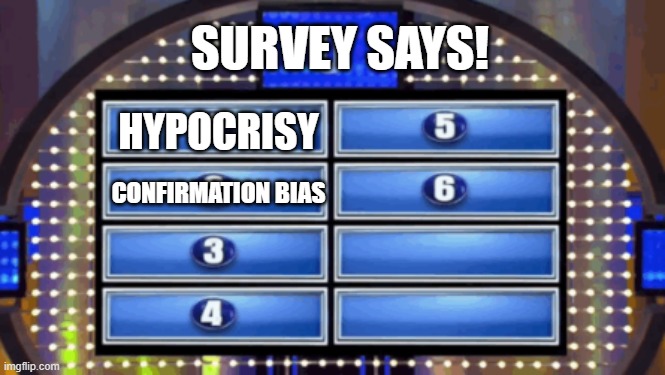Raleigh City Council is doing another survey about election reform. We say another because the council elected in 2019 (Mary-Ann Baldwin, Jonathan Melton, Stormie Forte and Corey Branch) did a survey on the topic and published those results in January 2022. But, they didn’t like your answers. So, they are commissioning another survey and this time they are wording the questions differently to try to get answers they like.
You can read the previous data here: Survey results. In that survey, 73% of the respondents (there were 1,267 responses in total) said they DO NOT WANT 4-year TERMS for City Council. Take note that the questions are just asked straight forwardly without additional editorial content.
You can read a previous report that explains City Council didn’t like those results and therefore made up reasons not to trust them here: Is it bias or hypocrisy?
The new survey asks four questions followed up by demographic questions. You can take the survey yourself here: 2023 City of Raleigh Election Process Survey
QUESTION 1
City Council members for the City of Raleigh currently serve 2-year terms. Extending the time between elections could give City Council members more time to learn about the organization, its issues, and align themselves to longer-term projects.
How supportive would you be of City Council members serving a 4-year term instead of a 2-year term?
You will notice the bias in the question immediately with the suggestion that longer terms in office will allow councilors more time to learn and work on longer-term projects.
What the question fails to point out is that if you don’t feel your representatives are doing what you put them in office to do, you’re stuck with them for a full four years instead of two. How about having elected officials stay in touch with their constituents and promote policies the voters want as a way of easily getting re-elected to be able to continue working on longer-term projects?
Remember that the council elected in 2019 (Mary-Ann Baldwin, Jonathan Melton, Stormie Forte and Corey Branch) gave themselves an extra 3rd year in office through a secret back-room deal. Do you really want to give politicians like them 4-year terms with your vote? Or would you prefer they have to earn their council seats by earning your vote every two years?
And, there’s our “Tricia Cotham” rule. Tricia Cotham! What more needs to be said? Cotham was elected to the state house as a Democrat and almost immediately switched parties to give the Republicans a veto-proof majority. Certainly all of her voters are breathing a sigh of relief she wasn’t elected to a 4-year term. The voters of Raleigh deserve no less.
If your state and federal representatives can stand for re-election every two years, so can your city councilors.
Our recommendation:

QUESTION 2
Currently, elections for all City Council members (District Council members and At-Large Council members) are held during the same year. Staggering the Council member’s terms could help allow voters to signal dissatisfaction and/or the need for course corrections every two years instead of every four years. Staggering terms balances accountability with continuity.
How supportive would you be of the City adopting staggered terms, where all 5 District City Council members are elected during the same election, and the Mayor and both At-Large City Council members are elected two years later?
This question is ONLY relevant if you agree with moving to 4-year terms. WE DO NOT.
Once again there is bias in the question to lead you toward the position favored by Mayor Baldwin.
In the past we have said that if you move to 4-year terms you MUST implement a primary system to eliminate the current plurality election* format that was forced on Raleigh by the 2019 council in a secret vote behind closed doors.
In addition to a primary, you should keep the mayor’s term to two years for greater accountability. Several other NC cities have a two year mayor with four year councilors.
Finally, you should separate the two At-Large councilors (if you decide to keep any At-Large councilors) into opposite election cycles. In this way, each voter would have two city-wide seats to elect every two years (the mayor and one At-Large seat) along with their district councilor every four years for greater accountability.
You will note that the survey never mentions the ideas of a primary, a 2-year term for the mayor or separating the At-Large seats into different cycles or even eliminating the At-Large council seats. This despite the fact that several councilors have mentioned being in favor of primaries as a requirement for moving to 4-year terms.
Our recommendation:

QUESTION 3
The City of Raleigh currently has 5 City Council Districts. Adding more District City Council members would reduce the number of residents represented by each district City Council member and increase resident access to their representative. Adding District seats will require Districts to be redrawn, and the voting precinct of residents will change.
How supportive would you be of the City adding multiple District seats?
We support adding more district seats for the reasons given. We would suggest adding three more districts to bring the council size to 11. The added benefit is bringing it to an odd number of seats to eliminate tie votes.
The bias in this question comes from the “warning” that adding district seats will require redistricting. Mayor Baldwin prefers to increase the size of the council by adding more At-Large seats.
Our recommendation:

QUESTION 4
The City of Raleigh currently has 2 At-Large City Council members. Adding more At-Large City Council members would increase representation of city-wide interests. Adding at-large representatives will not require Districts to be redrawn, and the voting precinct of residents will not change.
How supportive would you be of the City staying with 5 City Council Districts, but adding multiple At-Large City Council members?
The bias in this question is the same as in question 3. The “warning” that adding district seats will require redistricting. Mayor Baldwin prefers to increase the size of the council by adding more At-Large seats.
Adding more At-Large seats does NOTHING to lessen the load on individual councilors. Every additional district brings down the number of residents each district councilor represents and makes it easier for them to stay closer to their constituents and listen to them.
In our experience At-Large councilors, who in theory represent every resident of Raleigh, tend to focus their energy on downtown Raleigh even though over half the residents of Raleigh live not only outside of downtown, but also outside of the beltline. These residents’ priorities and needs are different than those of downtown residents and they deserve more representation, not less.
Our recommendation:

You can review the City Council meeting where the survey was discussed. The video is cued up to the beginning of a short presentation by staff prior to the council discussion.
You will hear Councilor Harrison express her desire to have the councilors review the survey questions before they are put to the public and also her desire to include discussion of a primary. It does not appear that either of her requests were honored.
Mayor Baldwin wants to move to 4-year terms and she wants it to take effect for the next election in November 2024. This is why you will hear her directing staff away from Councilor Harrison’s requests and toward the questions she wants to use.
There will not be enough time to draw new districts before the November 2024 election, so she prefers to increase the size of council with At-Large seats. Baldwin also does NOT want to use a primary to eliminate the plurality election* system. She has never won with a majority of voters and is not interested in being forced into a one-on-one race.
* Plurality Election – An election format that does NOT allow for a run-off if no candidate in the race receives over 50% of the votes. In this style of election the ultimate winner may garner far less than 50%. Especially if there are a large number of candidates running for the office.
You can read about the pros & cons of Raleigh’s plurality election system in our previous reporting:
Raleigh Elections, when are they?
Raleigh Elections – Plurality vs Majority
Raleigh Elections – What’s the right size for Council?
Livable Raleigh Editorial Team
If you appreciate the kind of reporting we bring to you
|
Please donate $10 or $20, Thanks for supporting |
 |

